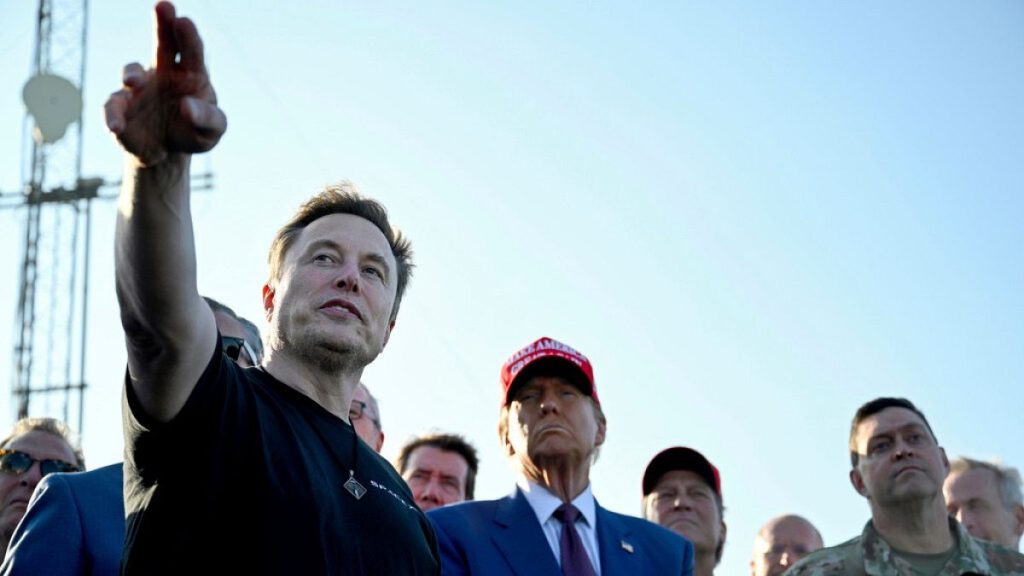Elon Musk’s foray into British politics has ignited a firestorm of controversy, marked by his vocal criticism of the Labour government and his explicit endorsement of far-right activist Tommy Robinson. Musk’s demand for Robinson’s release, prominently displayed on his X profile, followed a series of attacks on Prime Minister Keir Starmer and Safeguarding Minister Jess Phillips over their handling of historical child sexual exploitation cases in Rochdale and Oldham. This overt support for a figure known for promoting racist and Islamophobic views has drawn sharp rebukes from British MPs, many of whom view X, under Musk’s ownership, as increasingly becoming a platform for extremist ideologies. This raises serious concerns about the platform’s role in amplifying harmful narratives and the potential implications for political discourse, particularly in the context of Musk’s apparent alignment with far-right movements in both the UK and Germany.
Musk’s criticisms of the Labour government extend beyond the Robinson endorsement. He has repeatedly questioned Starmer’s record as head of the Crown Prosecution Service, alleging a failure to adequately address the issue of child sexual exploitation during his tenure. Musk’s attacks intensified with calls for fresh elections and accusations against Phillips, suggesting she “deserved to be in prison” for her stance on an inquiry into child exploitation in Oldham. While acknowledging systemic failures in the justice system’s response to these cases, Musk’s narrative omits Starmer’s role in appointing Nazir Afzal, the prosecutor who successfully brought charges against perpetrators in the Rochdale case. This selective presentation of information serves to bolster Musk’s broader critique of the Labour government and contributes to a polarized and increasingly hostile political climate.
The implications of Musk’s actions extend beyond the immediate political fallout. His endorsement of Robinson, a figure associated with violent street demonstrations and anti-immigrant sentiment, signals a disturbing normalization of far-right ideologies. Robinson’s previous conviction for contempt of court, stemming from false claims about a Syrian refugee, further underscores the dangers associated with his rhetoric. Musk’s embrace of such figures raises questions about his own political leanings and the potential impact of his platform on shaping public discourse. The amplification of extremist views through X could contribute to the erosion of democratic norms and the normalization of hateful ideologies, posing a significant threat to social cohesion and political stability.
Musk’s intervention in British politics is not an isolated incident. His recent endorsement of the far-right Alternative for Germany (AfD) party has drawn criticism from the German government, which accuses him of attempting to influence upcoming elections. This pattern of aligning with far-right movements suggests a broader agenda that transcends national borders. His relationship with Donald Trump, whom he has openly supported and advised, further complicates the picture. Trump’s appointment of Musk to a key government efficiency panel raises questions about the potential influence of far-right ideologies on the incoming US administration. The confluence of Musk’s wealth, his control over a powerful social media platform, and his apparent political ambitions creates a complex and potentially dangerous dynamic.
The British government’s response to Musk’s actions has been muted. While Downing Street previously criticized Musk’s tweet predicting “civil war” in Britain as “unacceptable,” there has been no official comment on his recent endorsements of far-right figures. This silence may reflect a cautious approach to engaging with a powerful and unpredictable figure. However, it also underscores the challenges faced by governments in navigating the increasingly complex relationship between social media platforms and political discourse. The ability of individuals like Musk to amplify extremist views and influence public opinion raises fundamental questions about the role of tech billionaires in democratic societies and the need for greater accountability and regulation.
The controversy surrounding Musk’s interventions in British politics highlights the increasing blurring of lines between technology, politics, and ideology. His actions raise critical questions about the responsibility of social media platforms in curbing the spread of disinformation and hate speech, and the potential consequences of unchecked power in the hands of tech billionaires. The long-term impact of Musk’s embrace of far-right figures and his attacks on established political figures remains to be seen, but his actions undoubtedly represent a significant development in the evolving landscape of political discourse and the growing influence of social media on shaping public opinion. The debate surrounding Musk’s actions serves as a stark reminder of the challenges facing democracies in the digital age and the urgent need to address the complex interplay between technology, power, and political ideology.














